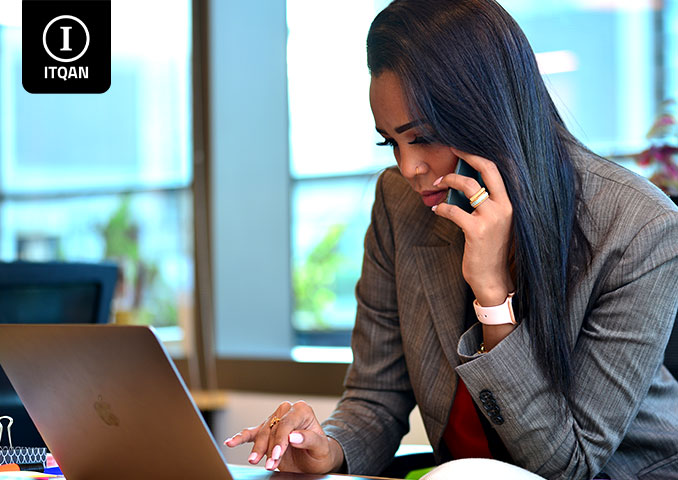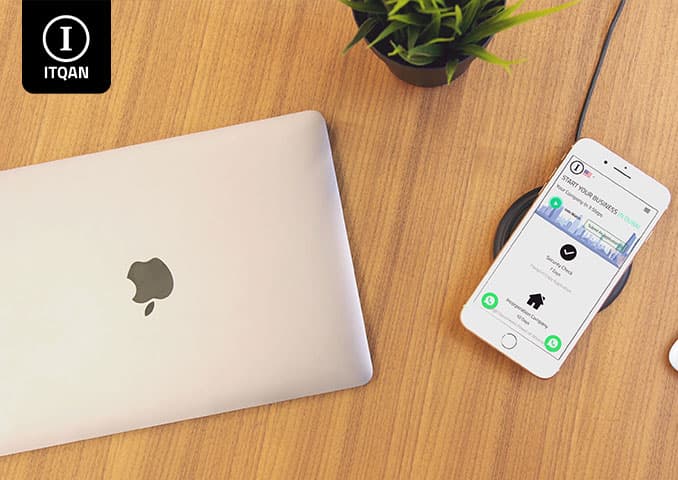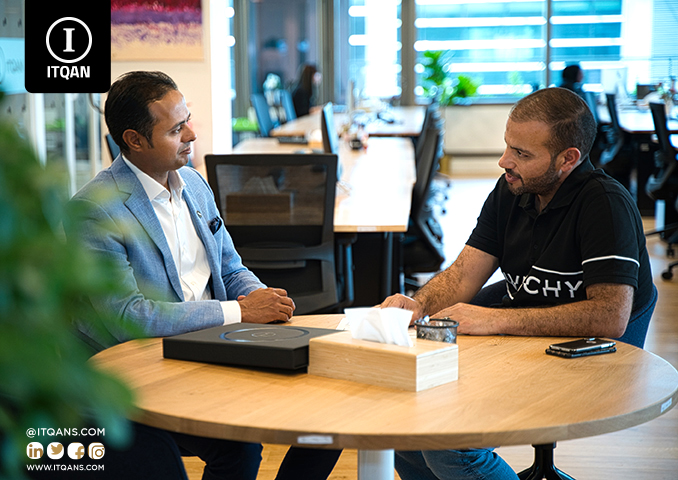Establishing a company in the Ras Al Khaimah Free Zone is an ideal investment opportunity for investors seeking to benefit from a flexible and restrictive business environment. The Ras Al Khaimah Free Zone boasts a strategic location close to global markets, tax exemptions, and low operating costs compared to other regions in the UAE. Additionally, this zone offers numerous legal and administrative facilities that make establishing a company in the Ras Al Khaimah Free Zone a smooth and convenient process. Whether you are an aspiring entrepreneur or an investor seeking new opportunities, establishing your company in this zone will give you a competitive advantage in various commercial, industrial, and service sectors. In this article, we will review the detailed steps and requirements you need to successfully complete the process of establishing a company in the Ras Al Khaimah Free Zone.

Table of Contents
ToggleSteps to Establish a Company in the Ras Al Khaimah Free Zone
The Ras Al Khaimah Free Zone is one of the UAE’s premier investment destinations, offering a flexible business environment and streamlined procedures for investors. Here are the basic steps for establishing a company in the Ras Al Khaimah Free Zone:
1. Choose the Type of Business Activity
The nature of the business activity the company will undertake must be determined, whether commercial, industrial, service, or consulting, as this affects the type of license required.
2. Determine the Legal Structure of the Company
The Ras Al Khaimah Free Zone allows the establishment of several types of companies, such as:
Free Zone Limited Liability Company (FZ-LLC).
Free Zone Establishment (FZE) – owned by a sole proprietor.
Branch of a local or foreign company.
3. Choose the Company Name
The trade name must be available and not previously registered.
Adhere to company name regulations, such as not containing prohibited words.
4. Submitting the Company Incorporation Application and Required Documents
Submit the company incorporation application form along with the required documents, such as:
A copy of the passport of all partners and managers.
A recent personal photo of each partner and manager.
A preliminary business plan.
The company’s articles of association and memorandum of association.
A no-objection certificate (if required).
5. Receiving Approvals and Paying Fees
After the application has been reviewed and approved, the incorporation fees must be paid. These fees include the company registration fees, issuance of the trade license, and office or workspace rent.
6. Signing Documents and Receiving the License
Once final approval is received, the official contracts are signed, after which the trade license is received, allowing you to officially begin operating.
7. Opening a Company Bank Account
A business bank account must be opened in a UAE bank to facilitate the company’s financial transactions.
8. Applying for Residence Visas
After receiving the license, the investor can apply for residence visas for themselves and their employees.
Documents Required to Establish a Company in a Free Zone
When establishing a company in the Ras Al Khaimah Free Zone, a set of documents must be submitted in accordance with the legal requirements of the free zone’s supervisory authority. Requirements vary slightly between free zones, but generally, the required documents include the following:
1. Investor Personal Documents
A copy of a valid passport for all shareholders and directors.
A copy of the residence visa or UAE entry stamp (if applicable).
A recent personal photo with a white background for each partner and director in the company.
Proof of current address (such as a utility bill or bank statement).
2. Company Documents
A company registration application form signed by the investors.
A preliminary business plan outlining the nature of the company’s business activity.
The company’s articles of association (if there is more than one partner).
Details of the company’s business activities.
The contract appointing the director (if one of the shareholders is not the director).
3. Additional Documents (if required)
A no-objection certificate (NOC) if the investor is a resident of the UAE and employed by another entity.
Details of the initial capital, if required by the free zone.
Approval from the competent authorities for certain special activities, such as financial or medical activities.
Expected Costs of Establishing a Company in the Ras Al Khaimah Free Zone
The costs associated with establishing a company in a free zone vary based on several factors, such as the type of business activity, the size of the company, and the required facilities. The following are the main factors that affect the total cost:
1. Company Registration Fees
These fees include the cost of officially registering the company in the free zone’s commercial registers and vary depending on the type of company and its legal structure.
2. Trade License Cost
Trade license fees vary depending on the business activity. Free zones offer several types of licenses, such as commercial, industrial, and service licenses, each of which carries a different cost.
3. Office or Commercial Space Rental Fees
The cost depends on the type of space required—whether it’s a shared office, a stand-alone office, or a warehouse—and varies depending on the size and location of the site within the free zone.
4. Visa and Residency Fees
If the investor requires residency in the UAE, there are costs associated with issuing visas for them and their employees, including visa fees, medical examinations, and residency procedures.
5. Additional Fees and Optional Services
There are some additional services that may affect the cost, such as:
Secretarial and administrative support services.
Legal and accounting consulting services.
Document notarization and official certification fees.
6. Bank Account Opening Costs
Although banks do not charge direct fees for opening accounts, there are minimum balance requirements that must be maintained, which may constitute part of the total cost of establishing the company.
7. Annual License Renewal Fees
In addition to the initial costs, annual costs for renewing the trade license, rent, and visas must be considered. These fees vary depending on the free zone and type of activity.

Advantages of Establishing a Company in the Ras Al Khaimah Free Zone
The Ras Al Khaimah Free Trade Zone (RAK Free Trade Zone) is a prime choice for investors looking to establish companies in the UAE, offering a stable and attractive business environment. Here are the most prominent advantages offered by the RAK Free Zone:
1. Tax Exemptions
Full Income Tax Exemption: Companies established in the RAK Free Zone enjoy full income tax exemption for up to 50 years. This makes it a preferred destination for companies seeking to minimize tax costs.
Value Added Tax (VAT) Exemption: Investors in the free zone enjoy multiple VAT exemptions on most commercial and service activities, enhancing companies’ competitiveness and reducing their costs.
2. 100% Ownership for Foreign Investors
Full Ownership: One of the most important advantages of establishing a company in the RAK Free Zone is that foreign investors are granted full ownership of their companies, without the need for a local partner. 3. Ease of Procedures and Establishment
Quick and Simple Procedures: The process of establishing a company in the Ras Al Khaimah Free Zone is quick and easy, allowing investors to start their business in a short time. An electronic incorporation service is also available, facilitating the application and completion of procedures.
4. Low Cost
Competitive Costs: Establishing a company in the Ras Al Khaimah Free Zone is more economical than some other free zones in the UAE, making it a great choice for investors seeking cost savings.
5. Stable Legal and Legislative Environment
Legal Stability: The Ras Al Khaimah Free Zone enjoys a flexible and stable legal and regulatory system, which enhances investor confidence and contributes to the development of their businesses.
6. Facilitating Financial Transactions and Transfers
Free Fund Transfer: Allows investors to freely transfer profits and capital anywhere in the world without restrictions or additional taxes. This ensures investors have flexibility in managing their funds and businesses. 7. Availability of Modern Facilities
Excellent Infrastructure: The Ras Al Khaimah Free Zone boasts modern facilities such as administrative offices, warehouses, and factories, providing investors with a convenient and professional business environment.
8. Diverse Opportunities in Various Sectors
Diversified Business Activities: The Ras Al Khaimah Free Zone supports a wide range of economic activities, including trade, manufacturing, logistics, technology, and import and export, opening up numerous investment opportunities.
9. Strategic Location
Easy Access to Global Markets: The Ras Al Khaimah Free Zone is located near major seaports and airports, providing investors with easy access to regional and global markets.
10. Opportunities for Expansion and Growth
Business Expansion: The Ras Al Khaimah Free Zone offers numerous opportunities for business expansion and regional and international expansion, helping companies grow sustainably.
Ultimately, establishing a company in the Ras Al Khaimah Free Zone is a smart investment choice for anyone seeking a flexible and competitive business environment. By following the correct legal procedures and taking advantage of the facilities offered by the free zone, investors can achieve sustainable success across various sectors. The region’s advantages, such as full foreign ownership, tax exemptions, and ease of business formation, make it a preferred destination for entrepreneurs from around the world. Therefore, if you’re considering establishing a company in the Ras Al Khaimah Free Zone, making the right decision and careful planning will enable you to realize your business ambitions in a supportive and prosperous environment.
Top Frequently Asked Questions About Starting a Company in Ras Al Khaimah Free Zone
What is a Dubai Free Zone?
A free zone is an economic zone that offers benefits such as tax exemptions, full foreign ownership, and business facilitation.
Can foreigners own 100% of a company?
Yes, foreigners can own a company entirely without the need for a local partner.
Can residency visas be obtained through a company?
Yes, residency visas can be obtained for investors and employees based on the size of the company.
What are the approximate costs of starting a company in a free zone?
Costs vary by free zone and include registration fees, visas, and office rental.













